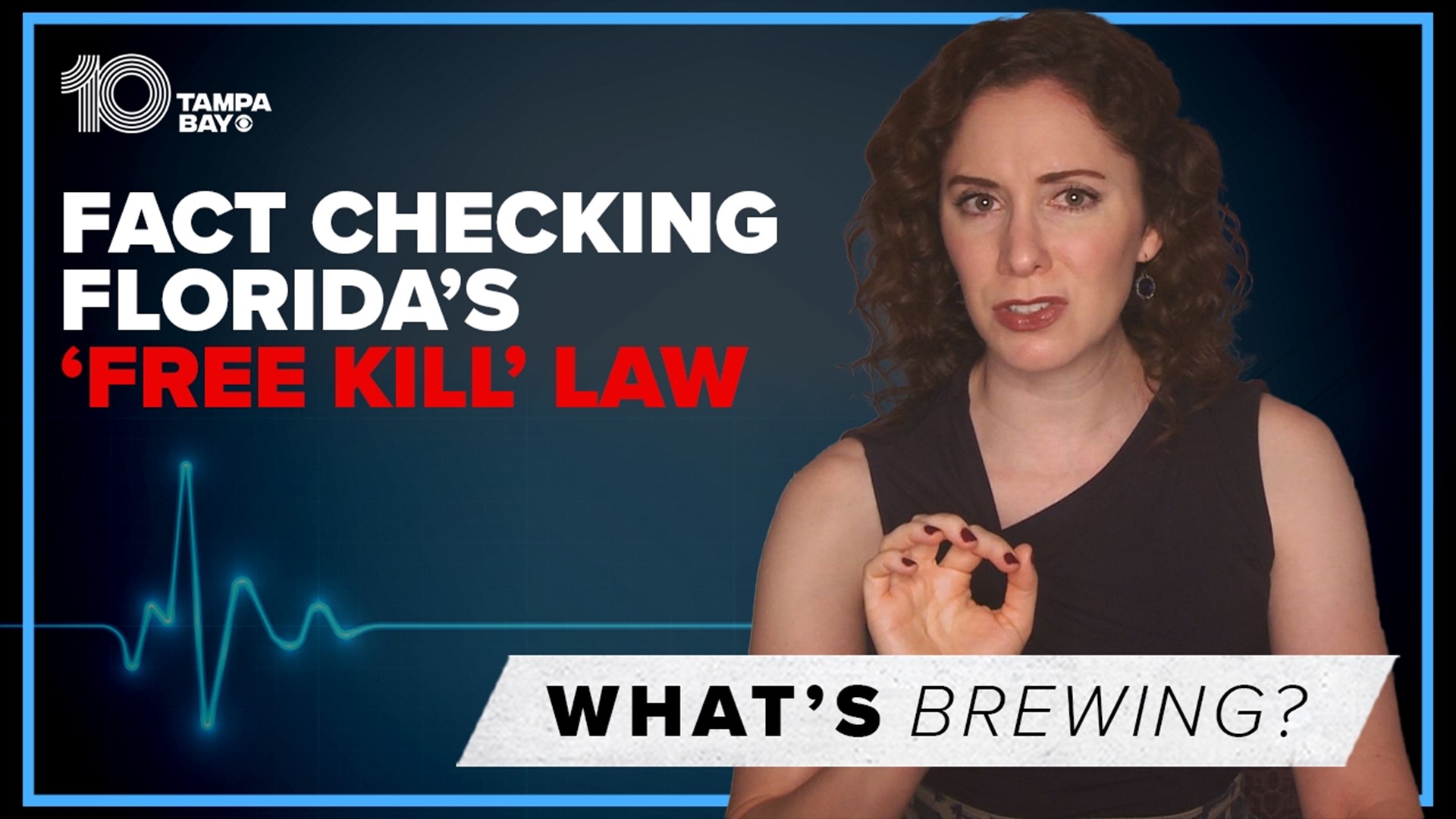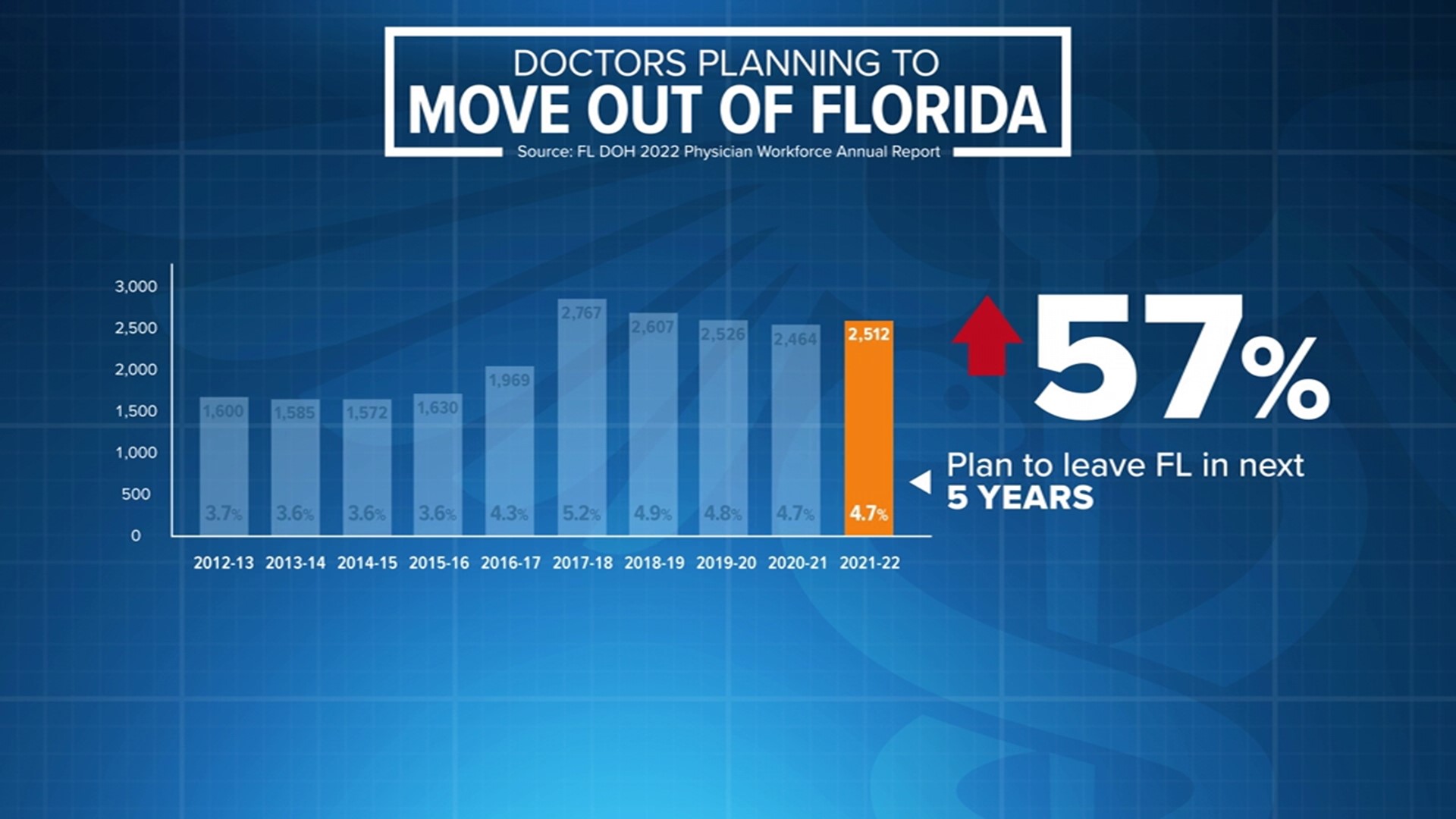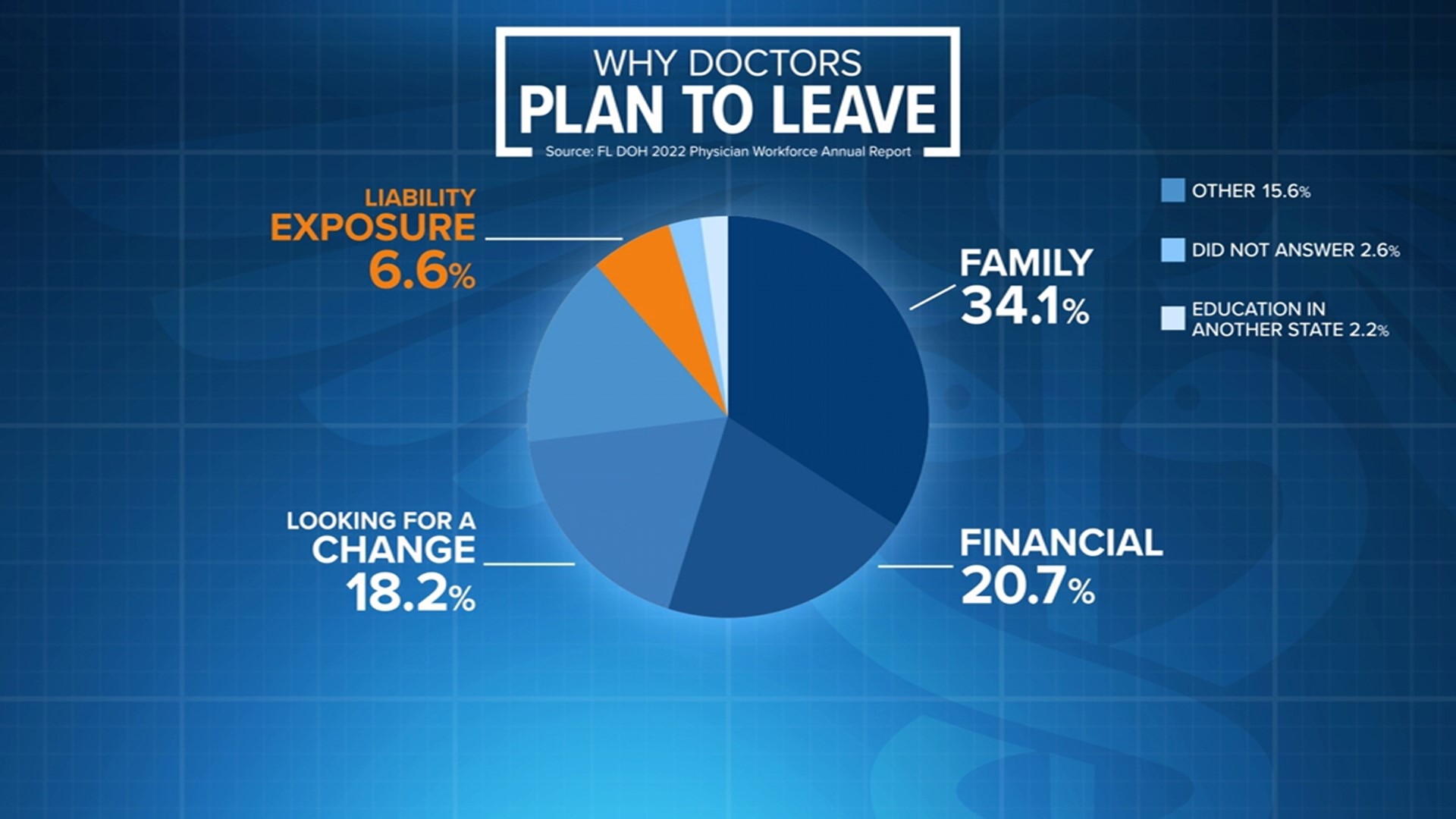ST. PETERSBURG, Fla. — A Florida law is keeping Tamika Ganzy from seeking justice after her mother’s death.
“She just had something that shined through,” said Ganzy, while looking at a picture of her mother taken on a family cruise. “Her eyes are the best part I love to look at in this photo.”
A photo is now the only way she can look into her mother’s eyes.
Gail Ganzy died three months ago in a Polk County hospital.
“She knew of all my goals, all my dreams, all my aspirations. And she always did whatever she could to make sure that they all came true. And knowing that I don’t have that person, it’s the hardest part,” Tamika Ganzy said.

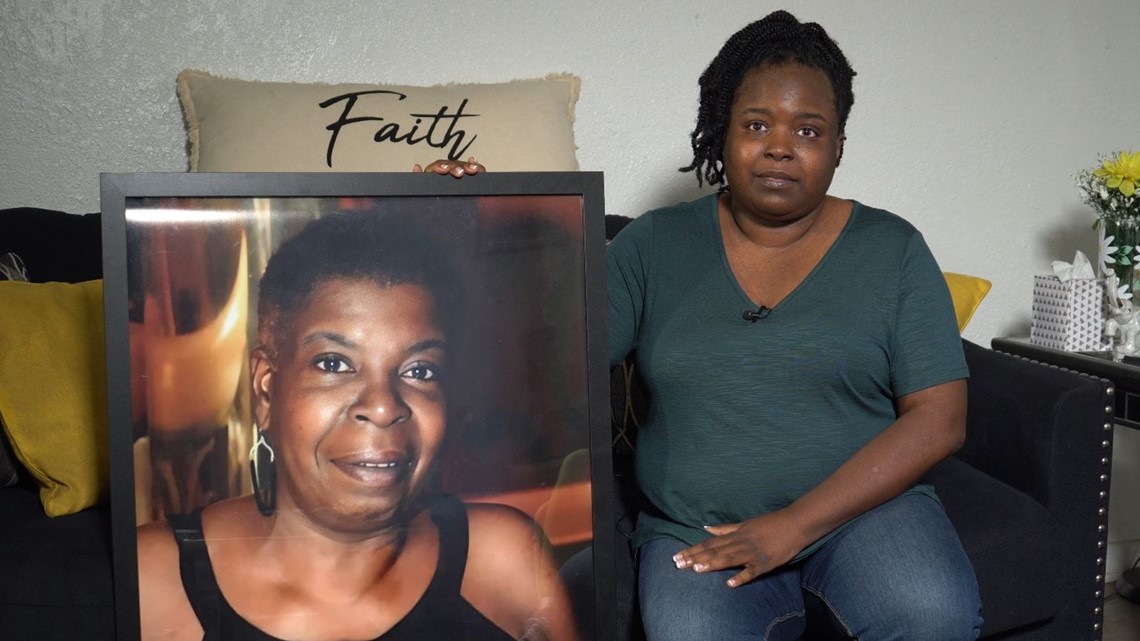
She says her mother went in for a routine procedure, but she died after the hospital overdosed her on medicine.
The medical examiner’s office told 10 Investigates it did not perform an autopsy.
“I called the attorneys to see what recourse there was,” Tamika Ganzy said. “I wanted systems put in place. I wanted things to put in place to prevent this from ever happening to someone else.”
But she says all the lawyers she called for help told her they couldn’t take her case.
“'We would love to take your case for your mom, but because of the law, we’re not going to be able to.' And I was like, ‘Well, what law?’ And they informed me that there was something called the ‘free kill law,’” Tamika Ganzy said.
Critics call it Florida's 'free kill' law
Those lawyers were referencing subsection 8 of Florida’s Wrongful Death Act. It limits who can sue if their loved one dies from medical malpractice.
If you are 25 or older, unmarried or widowed, and have no children under the age of 25, you are what critics of the law call a “free kill.” That means your loved ones can’t sue the doctor or healthcare facility for mental pain and suffering damages.
“I feel as if they’re saying that if you do not have a legal spouse, or a child under the age of 25, then your life is worthless,” Tamika Ganzy said. “I think that it’s heinous and it’s cruel.”

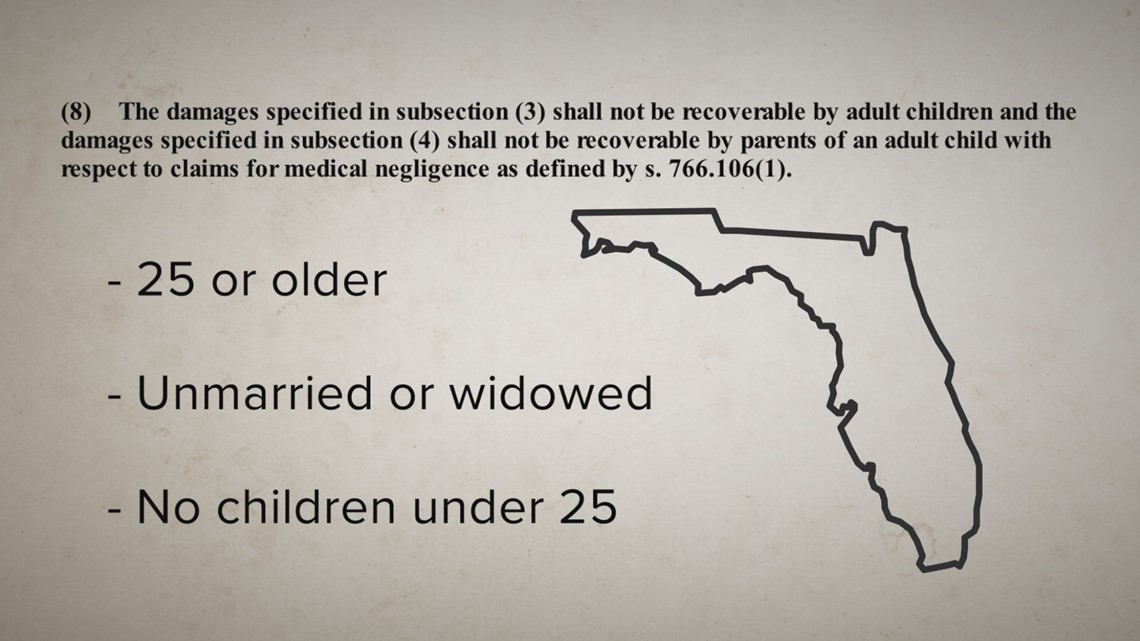
“What [the nickname ‘free kill’ is] suggesting, obviously, is that the health care provider got a pass. They got a freebie. They got a ‘get out of jail free’ card. They got to avoid this. They got a ‘free kill,’” said Jack Cook, a medical malpractice attorney with Morgan & Morgan who represents patients and their families.
Cook told 10 Investigates his office turns down several families a week because of this law.
“In every one of those cases that can’t be brought, you lose that important learning process of the claim. The deterrent process that prevents these mistakes from ever happening again,” Cook said.
If those same patients survived, they could sue.
“It's a balancing act. And anytime you're looking at any segment of the law, there has to be a line drawn somewhere, and the legislature chose to draw it where it is,” Ybor City attorney Andy Bolin said.
Bolin has been representing Florida doctors and hospitals for decades.
“I think [the nickname ‘free kill’ is] offensive. There is absolutely no example that I've ever been provided that suggests a health care provider in the state of Florida has withheld care or treatment because they went out and looked at a chart and saw that someone is 26, and unmarried, with no children,” Bolin said.
Fact-checking the justifications for this law
Health care providers have been protected by subsection 8 of Florida’s Wrongful Death Act since the state legislature passed it in 1990.
“They recognized a perceived medical malpractice crisis that was looming in the state,” Bolin said.
Lawmakers were worried that doctors would leave Florida if malpractice insurance rates spiked here.
“The legislature was hearing very strongly from the medical community, ‘If you don't pass these laws, we will not come to your state. We will not stay in your state. Or we won’t insure doctors in your state at a reasonable rate,’” Cook said.
We fact-checked whether those are still legitimate concerns, 33 years later.
Data from the Florida Department of Health’s 2022 Physician Workforce Annual Report indicates state law hasn’t stopped doctors from leaving. Over the past 10 years, the number of doctors planning to move out of Florida has increased 57%.
Nearly 5% of physicians surveyed said they plan to leave Florida in the next five years. Their top reason for leaving was “family.”
“Financial” reasons clocked in second, barely above “looking for a change.” Fewer than 7 percent blamed “liability exposure.”
“I think it's dangerous to start removing those protections and then finding out whether or not, in fact, we needed them,” Bolin said.
According to data from the Association of American Medical Colleges, the number of active physicians per capita in Florida is average compared to the rest of the country. Its 2021 Florida State Physician Workforce Data Report ranks Florida right in the middle: Number 25 out of 50 states, plus D.C. and Puerto Rico.
“Medical malpractice premiums are on the rise, and we're talking to our clients who are seeing 40% and 50% increases year over year in their medical malpractice premiums,” Bolin told 10 Investigates.
However, according to data from the Medical Liability Monitor, over the past three years, the majority of medical liability insurers did not increase Florida doctors’ rates.
“All I can tell you is what I hear from my clients and what they are seeing is increases year over year,” Bolin said. “Especially when you talk about high-risk specialties like obstetricians and surgeons, their medical malpractice rates are certainly a strain.”
'Free kill' families’ current options
So, what options do families have if this law keeps them out of the court system?
They can file complaints with the Florida Department of Health, which can bring them before the Board of Medicine to take action against a doctor’s license and fine them. But the family doesn’t see a dime of those fines; that money goes to the state.
Families can also report the hospital to the Agency for Health Care Administration, which can punish a facility as a whole.
But family after family tells us the process of reporting to these state agencies is frustrating and inadequate.
Will Florida lawmakers vote differently in 2024?
Florida lawmakers have filed five bills so far for the upcoming state legislative session that would modify or repeal all or part of subsection eight of Florida’s Wrongful Death Act.
At least six similar bills have died in committee over the past two years.
In 2021, the Florida Chamber of Commerce sent an email pressuring legislators to oppose a bill to repeal, saying the Chamber would count lawmakers' votes on it twice in its annual "How They Voted" report card.
The Chamber has not responded to our questions about the 2021 email, or whether they plan to send a similar email to legislators this year.
"...The Florida Chamber urges you to oppose HB 651, and will consider votes on this legislation, and any substantive amendments to it in committee or on the floor, in our annual How They Voted report card. Because of the importance of this issue to employers across the state, our Board of Directors has determined that this bill, and any substantive amendments to it in committee or on the floor, will be counted twice on our legislative report card. ..." — Frank C. Walker, III; Vice President of Government Affairs (letter presented in part)
“We’re opening our doors for people to move here, for senior citizens to come here, knowing they’re potential ‘free kills.’ It’s disgusting,” Tamika Ganzy said.
Ganzy said she’s hopeful the upcoming legislative session will be different.
“A million dollars will never bring my mom back. A million dollars will never stop me from crying or feeling the loss of my mom. Money won’t cushion that in the least. Making sure that someone else doesn’t go through it with their mother, that is what I want,” she said.
Florida’s legislative session begins Jan. 9, 2024.

